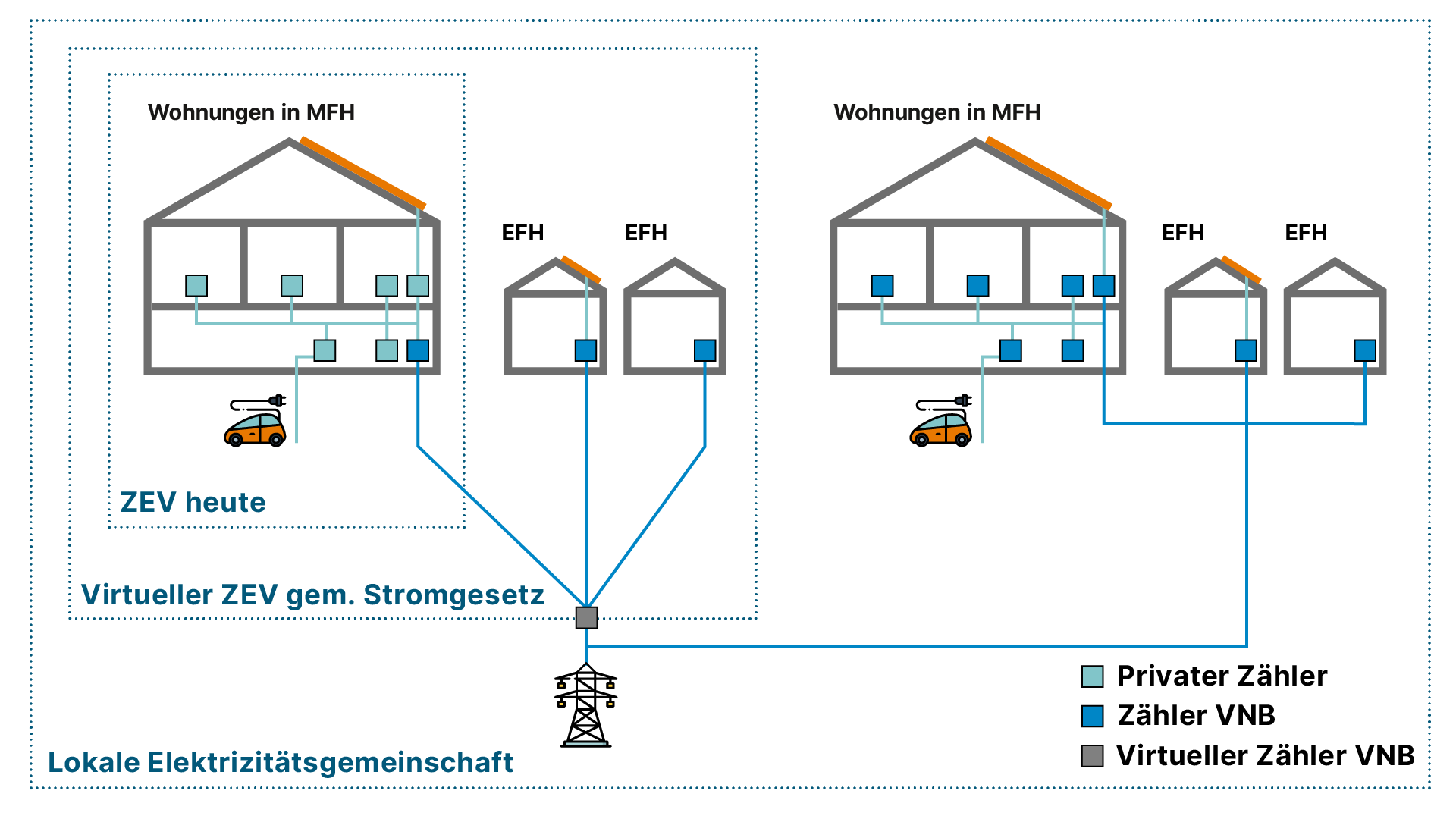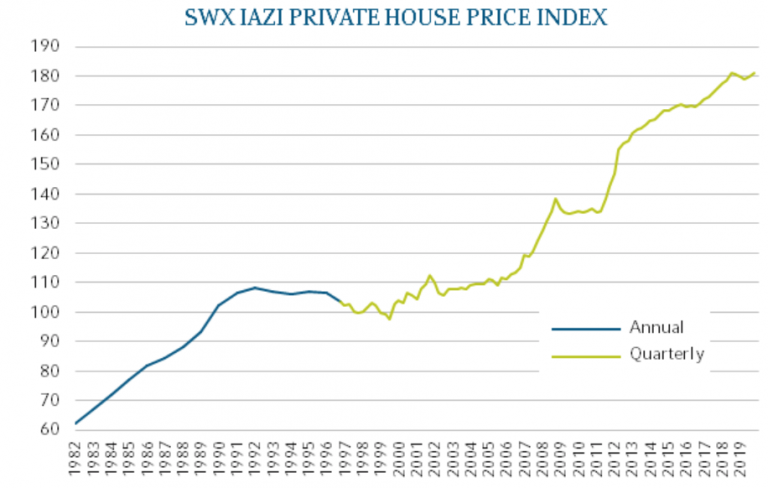With your own solar power system, you can reduce your electricity costs and keep them low in the long term – regardless of fluctuations on the electricity market. In the medium term, investing in solar energy is therefore worthwhile in any case, especially as the costs for building the system have fallen significantly in recent years. However, it is often the case that more energy is generated than you can use yourself or that electricity has to be fed into the grid at low tariffs when consumption fluctuates. In addition, electricity providers can block the feed-in of solar power if the local grids are overloaded, meaning that the energy remains unused.
For this reason, it has been possible for several years to form a so-called ZEV (association for self-consumption). This allows neighbours in the same house or estate to take over the ‘surplus’ electricity at favourable conditions and reduce the feed-in to the public grid. However, the prerequisite for this was previously the existence of a common electricity meter, which is often not the case, especially in housing estates.
With the revised Electricity Act, which Switzerland approved on 9 June 2024, two new options for using self-generated electricity will be available from 2025.
Two new options for electricity communities
Properties without a shared meter can now also join together to form a utilisation community via a so-called virtual meter. There are two options for this:
- The use of the connection lines is used to form a virtual association for self-consumption (vZEV). The metering devices of the distribution system operator can be used.
- With the revised Electricity Supply Act, locally generated electricity can in future be marketed via the public grid within a neighbourhood or even a municipality as part of a local electricity community (LEG).
Swissolar recently published a clear graphic to illustrate the differences between an association for self-consumption (ZEV), a virtual association for self-consumption (vZEV) and a local electricity community (LEG):

Differences between an association for self-consumption (ZEV), a virtual association for self-consumption (vZEV) and a local electricity community (LEG); graphic linked to Swissolar.
Share photovoltaic power more easily
Hugo Steiner AG, a sister company of WüstundWüst within the IntercityGroup, recently published an article worth reading in its online magazine under this title.


